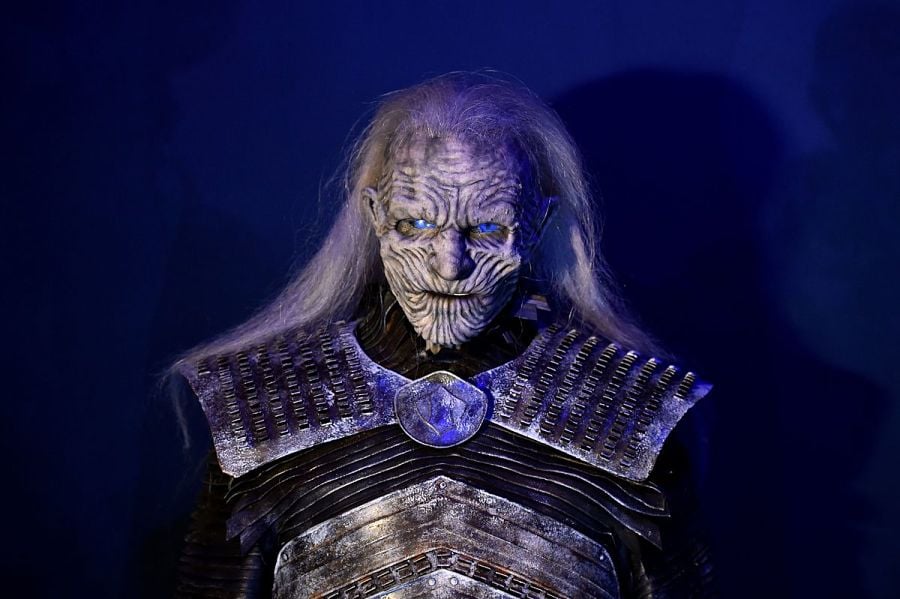For those of us who love the HBO series "Game of Thrones" — and I'm guessing that's pretty much everyone reading — one question has nagged for the majority of the show's run: Just who is this Night King guy?
We know a few things. The signature villain was once human. He has ominous horns jutting from his head. He doesn't talk much. He has glowing blue eyes. He reanimates scores of dead folk into murderous zombies, all with a nonchalant
half-raising of his arms. Oh, and he wants to kill everyone in the Seven Kingdoms and create an "endless night."
But we don't know much else of substance about the Night King or his back story. I repeat, who
is he?
Well, folks, we now have our answer. It's Alexander Acosta. The secretary of Labor is the Night King, and he's bringing something back from the dead: the DOL fiduciary rule.
The Department of Labor's rule, an Obama-era regulation that raised investment-advice standards in retirement accounts, is currently cold and lifeless. It
was killed by the Fifth Circuit Court of Appeals, which struck down the regulation in March 2018.
Mr. Acosta
told lawmakers yesterday that his agency "will be issuing new rules in this area." The DOL chief is raising the rule from the dead. I wasn't there to see if Mr. Acosta dramatically lifted his arms in signature Night King style when he said this, but we can all use our imaginations.
The DOL, Mr. Acosta said during a hearing of the House Education and Labor Committee, is currently collaborating with the Securities and Exchange Commission, which is working to finalize a rule of its own that governs investment-advice standards for brokers. The DOL will craft a new rule based on that collaboration, Mr. Acosta said.
Investor advocates expect that a new DOL fiduciary rule, the timeline for which is currently unknown, would be significantly watered down from the original one that
took effect for a short period beginning in June 2017.
Much like a zombie — or a "wight," to use "Game of Thrones" jargon — the new DOL rule will be just a shell of its former self.
"Its brains have been eaten," said Barbara Roper, director of investor protection at the Consumer Federation of America.
This is because the SEC rule — which supposedly will serve as the template for the new DOL rule — would not create a fiduciary standard. Regulation Best Interest, as it's called, will just "tweak the status quo," Ms. Roper said, referring to the existing "suitability" standard of conduct for brokers. A final version of the SEC rule is expected to be released by this summer, and it isn't expected to change much from the SEC's proposed version.
The original DOL fiduciary rule did create a fiduciary standard governing a broad range of conduct with 401(k) and IRA investors. Brokerage firms had to fundamentally alter the way they conducted business to eliminate conflicts of interest.
Their brokers, for example, could no longer engage in behavior such as recommending that an investor buy one product over another because it paid the broker a higher commission. Much more analysis of rollover transactions was required.
Andrew Oringer, a partner at the law firm Dechert, sees two ways the DOL-SEC coordination could play out. In one scenario, the DOL could take an "additive" approach, in which it "adds meat to the bones" of what it means to be a fiduciary under the Employee Retirement Income Security Act of 1974. In the second, it could issue an ERISA exemption permitting behavior in a retirement plan context that's allowed by the SEC advice rule.
However, the latter approach has the potential to loosen the existing ERISA standards, Mr. Oringer said, and would likely have to be crafted carefully to avoid undesirable results.
Now I know what you're thinking: If Alexander Acosta is the Night King, does that mean the DOL's remaining top brass — his lieutenants — are white walkers, the leaders of the zombies? Probably. Does Mr. Acosta ride an undead dragon to work every day? Almost certainly.
If these answers seem implausible, even insane, consider this: Would you have expected Game of Thrones' chief villain to be a Washington bureaucrat? I wouldn't have. But Mr. Acosta confirmed the truth of it.







